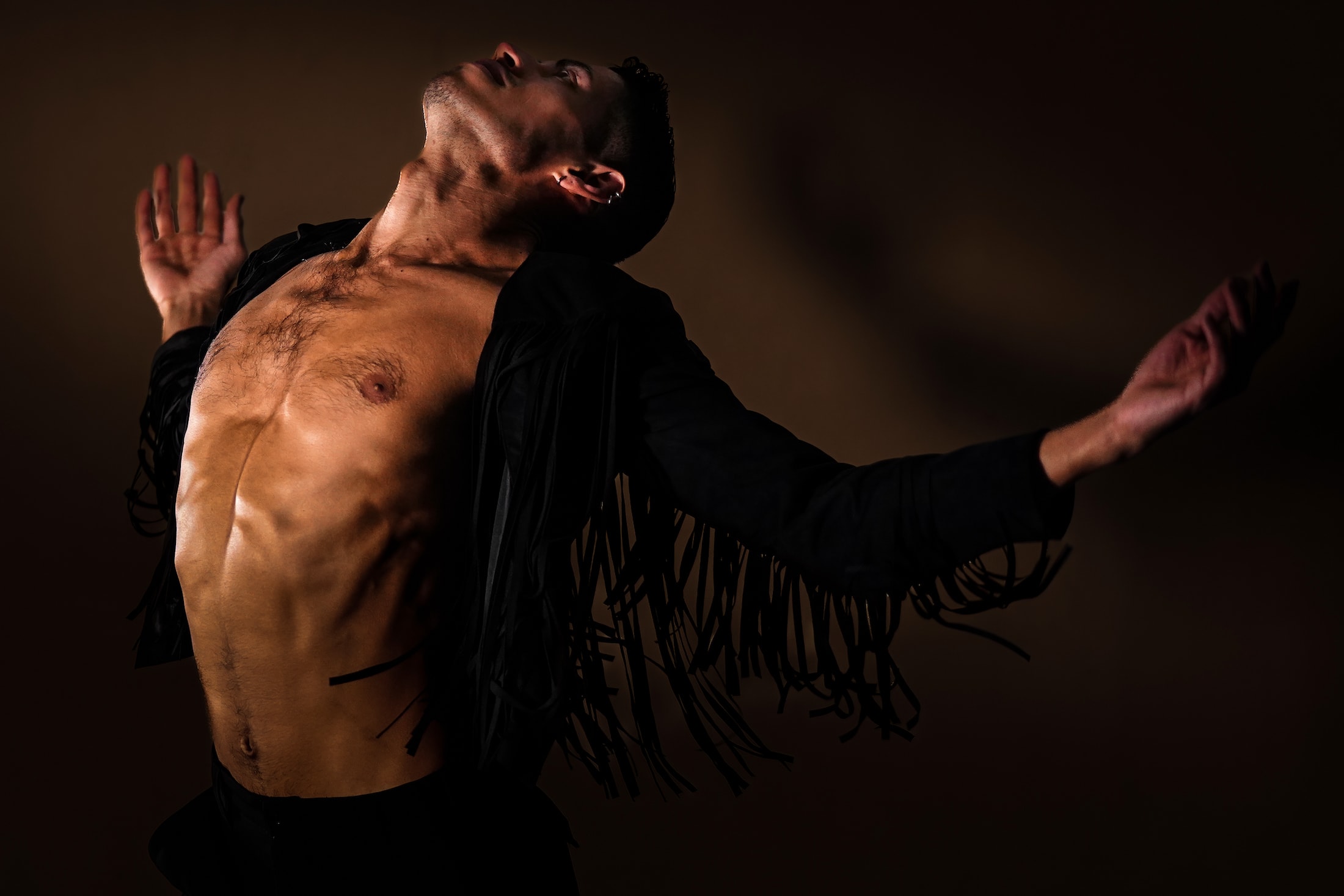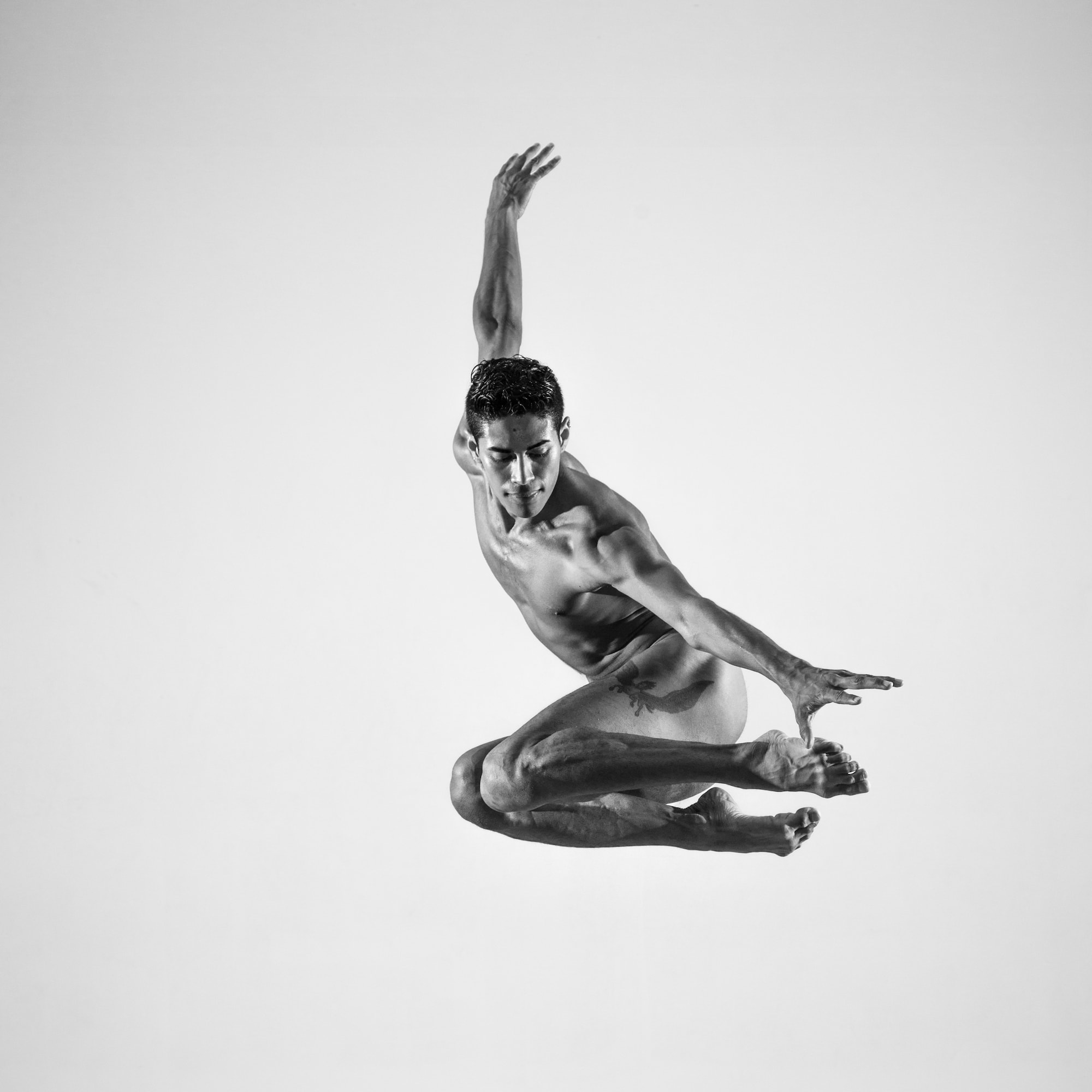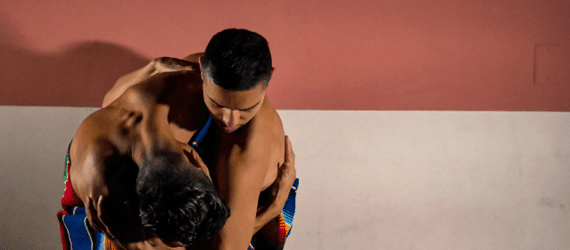Gabriel Mata (pronounced: gah-bryehl mah-tah) is a Mexican American dance choreographer, educator, film maker, and performer. He navigates the world as queer, Latinx, immigrant, and as of recently a permanent resident to the United States. He received his MFA in dance from the University of Maryland – College Park.
Centered on movement, Mata’s multidisciplinary approach offers access to intersectionality and narrative. A theme that is currently at the forefront of his research is the presence and development of BIPOC art and narrative. His artistic research and practice stems from social activation, egalitarian processes in dance education, and decentering concert dance through collective movement making.
The Minnesota StarTribune has called him “Sly, subtle and totally virtuosic, theatrical dancer-choreographer Gabriel Mata holds the stage with expressive movement and witty words.” His dance works have been performed in Minnesota, California, New York, North Carolina, Maryland, Pennsylvania, New Jersey, Washington DC, and the John F. Kennedy Center for the Performing Arts. His work has been commissioned by David Herrera Performance Company, Georgian Court University, Dance Loft on 14, sjDANCEco, Charlotte Dance Festival, Howard Community College, the Festival of Latin American Contemporary Choreographers, Dance Place, Silicon Valley Pride, the Hispanic National Bar Association, and the Charlotte Dance Festival.
Recently, in performance Mata has collaborated with artists like Adrian Gaston Garcia (DC) Joteria: Our untold stories…, commissioned by David Herrera Performance Company (SF) Oralé, and Leslie Garcia (San José) Raices, al sur, and Gary Champi (WA/NY) Off White along with Michael Wall (AZ), avant garde costume designer Gabriel Feliú (Puerto Rico).
Mata has been awarded the Amplify Grant, DC Commission for the Arts, Humanities Fellowship Grant, DCCAH Performance, Events, and Festival Grant, and the Kennedy Center REACH Campus Office Hours Residency.
Return to Atlas Arts Lab
My process, practice, and performance in dance is centered on lived experience and social activation. My identities as queer, immigrant, first-generation, and a person of color offer a viewpoint and voice that requires expanding beyond the genre of dance. Through text and narrative, with a contemporary approach, I broaden performance, connection, and experiences on stage.
As an academic, I interrogate how Western concert dance (as a white hierarchical art form) has contributed to a disconnection to audiences and by extension community. Through contemporary modern talking-dancing, I decenter the elitist notions and reimagine how the concert stage can be inviting and a receptive communal ground. This practice offers space for the development of engaged conversations through performance. Themes such as egalitarianism, connection, teaching/learning, and humanity drive the focus on how and why I create on the proscenium theater.
As a choreographer, I develop dance works in collaboration with movement artists. Varying choreographic approaches help highlight the performers lived experiences, agency, movement, and intuition. This practice is influenced by the intertwining of humanistic ideology from the Limón technique, academic processes of de-centering from white Eurocentric heteronormative concert dance, and socially conscious practices of equity and inclusion. Not to be perceived as a definite answer, this artistic approach and research is in development. It is a living process and research that needs to be directed by BIPOC and queer artists.
As an independent artist focused on social and artistic development, I attend to the spaces that have yet to be created. I navigate through the duality of choreographer and artist advocate in performance and community engagement. I am guided by a vision which attends to the local community within an equitable and humanistic approach. Responding from my own lived experience and recognizing present social needs, it is the depth of my intersectionality, my range in living with adversity, and in collaborative performance that I engage the stage as a space for bodies that have been deemed marginalized and are underrepresented (financially and through presentation).
Defining Latinx is an evening length solo work centered on the Latinx experience through movement and narrative. Through solo performances and from a collaborative process, the work highlights and performs a dynamic range of Latin-American identity and history from local current contemporary thinkers and writers. It is the POC immigrant individual propelling through the current political tension of being American.
This work is part of my individual ten-year-long research and development of motion memoirs. My work in motion memoirs has been supported through local and institutional grant funding, commissioned by companies in California, Minnesota, New York City, and Washington DC, and presented in national and international dance film festivals. Centered on BIPOC and queer experiences, this genre of movement and narrative creates a platform that is not directed by the weight and expectation of a proscenium stage nor evaluated by the inherent whiteness of concert dance.
The evening length work centers on five distinct themes:
The American Dream – Immigrant Perspective
Defining America/Defined America
Mexican, Mexican-American, American – Chicano Studies
Amerika – the queer POC view
Becoming American Losing Latinidad? – Naturalization
This work will incorporate stories and collaboration with local Latinx and queer identifying residents. This work also plays a role in undoing white eurocentric notions of hierarchy that play a role in Latinidad. Additionally, it is about regaining the identity while recognizing the lost time that has been experienced from the idea of America as “white.”
Part movement and part theater, this piece takes on an multidisciplinary approach to take on a weighted and contentious topic that is at the forefront of social restructuring. The Arts Lab will allow me to go further into the research and social activation from the experience.
April 26, 11am – 12pm
Join the artists for an open rehearsal. Experience behind the scenes of our new artist incubator series Atlas Arts Lab. This event is free to attend.
RSVP
Why did you apply to Atlas Arts Lab?
I applied for the Arts Lab as it offered six months of rehearsal space for artists. That is helpful as I am in a community where support for dance choreographers is limited.
Why do you support the Atlas?
I do not feel that I support the APAC, I feel that I am in community with Atlas. In this sense of community, it is the most humanistic and socially conscious as I have also been able to experience other artists that the APAC uplifts and highlights through their programming.
What work are you producing in the lab?
I work in contemporary modern dance, however, I was trained in contemporary ballet. For this work, Azúcar, I will be working with ballet themes as it has formed my movement vocabulary. Additionally, I will also be layering in a POC viewpoint and the writing of Brenda Dixon Gottschild.



